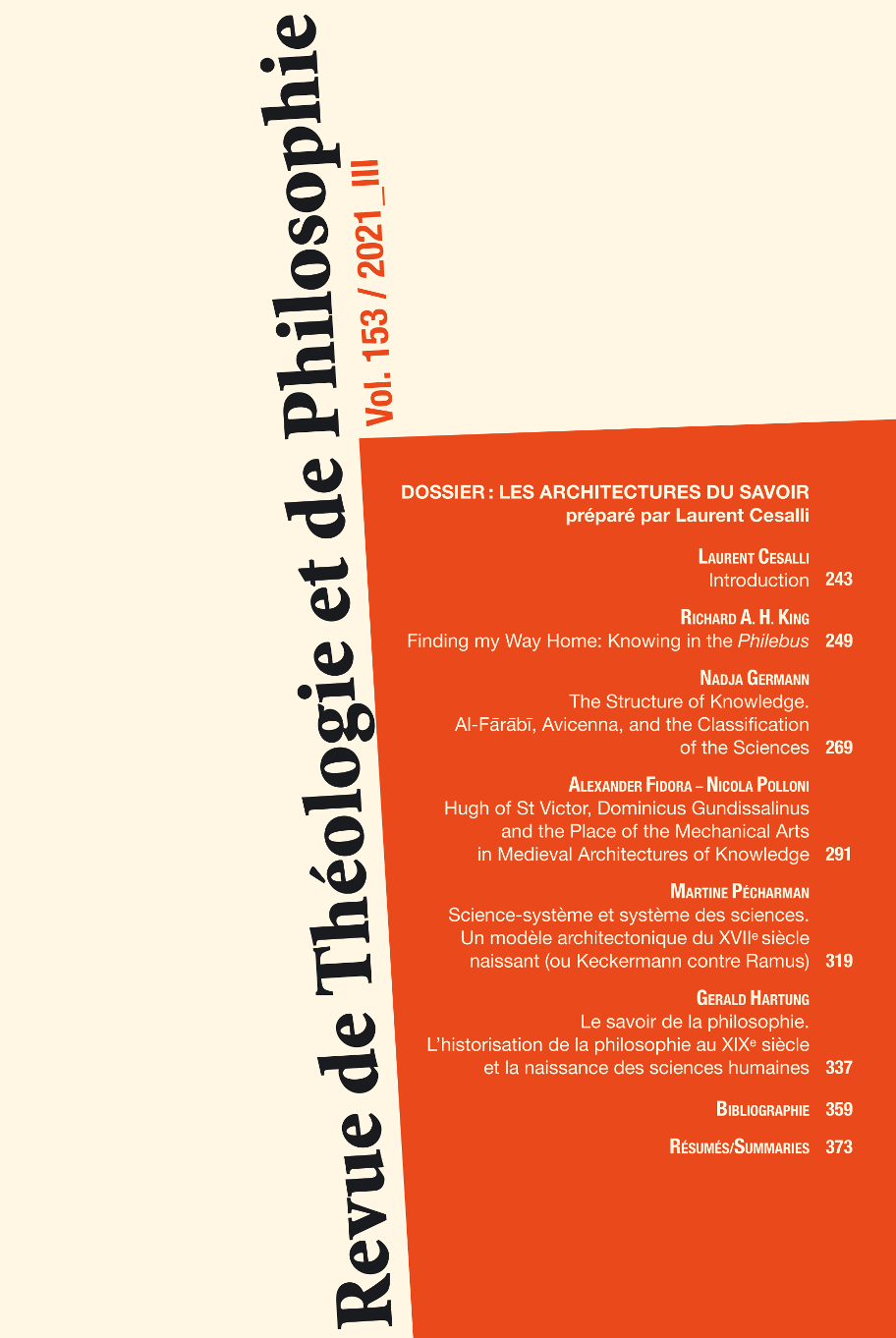Knowledge in Philosophy
The Historicisation of Philosophy in the 19th Century and the Emergence of the Humanities
Abstract
In the 19th century, the world as we know it took shape. Not just the shape of societies, but also the shapes of knowledge began to be considered as evolving and culturally. The attempt to stop or reverse this process by fostering traditions through the construal of general notions such as “spirit”, “culture”, “people”, “nation” or “race” cannot bring to a halt the radical historicizing process of our forms of life and of the bodies of knowledge. This article seeks to show the consequences of this development for an architecture of knowledge in the humanities and in cultural studies. The hypothesis is that a difference between the fields of knowledge comes from the difference in the speed with which they shut or open themselves up to historical thinking. More precisely, the aim is to show how a discipline of knowledge such as “philosophy” continues to develop in the midst of this kind of ambivalence of openness and rejection with regard to historical thought – thus raising always anew the basic question of the relation between truth and history.
How to Cite
More Citation Formats
